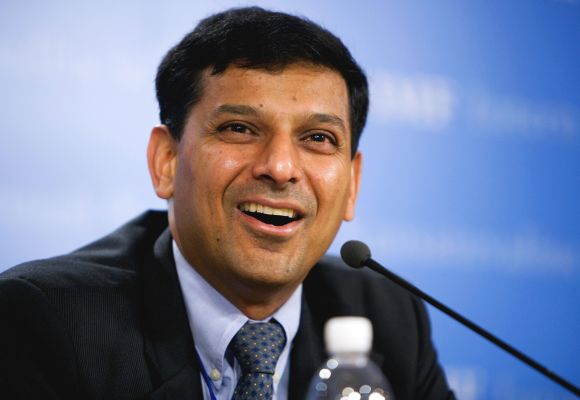India : Rajan’s final RBI policy review to hold line against inflation

MUMBAI : Inflation at a two-year high will probably prevent Raghuram Rajan from cutting interest rates at his final policy review as head of the Reserve Bank of India on Tuesday.
The government has still to pick a successor to the highly respected former International Monetary Fund chief economist.
But when he walks away on Sept. 4 to return to academia and family living in the United States, Rajan will be relieved that he leaves behind a government that last week formerly adopted the consumer price inflation targets he had set.
Chances are that the next RBI governor will be able to make what could well be the final reduction in an easing cycle that has brought the policy repo rate down to a more than five-year low of 6.5 percent.
Rajan has lowered rates by 150 basis points since January last year, but economists doubt whether the current cycle has much further to run.
“Even if a dovish governor takes over he or she would have a very narrow window to cut rates,” said Radhika Rao, an economist at DBS Bank.
“Food prices have been very volatile and despite monsoon rains they could remain high in July-August. We have another 25 bps cut pencilled in for the fourth quarter of this calendar year and then it will stay flat after that.”
Most economists polled by Reuters hold a similar view.
Inflation is a long way below the double digit levels prevailing when Rajan was appointed in 2013, but at 5.77 percent in June, it was near the top of the RBI’s 2-6 percent range, and above the near-term target of 5 percent by March next year.
Rains have been better than average, suggesting food prices that shot up before the monsoon arrived will moderate. But they are stubbornly high in rural areas suffering from the previous two years of drought.
And inflation could be stoked by the impact of a pay increase for government workers and pressures arising ahead of the imposition of a nationwide goods and services tax approved by the upper house of parliament last week.
Still, Rajan has succeeded in convincing Prime Minister Narendra Modi’s government of the merits of inflation targeting.
He has also persuaded the government to form a monetary policy committee, made up of central bankers and members chosen by the government, to decide interest rate changes in future.
The panel has still to be formed, and whoever takes over from Rajan will have to follow through on a campaign to clean up the country’s banks.
Although measures were announced in April to make banks more quickly reflect interest rate changes in their lending rates, the sector has struggled to lower borrowing costs at a time when their profitability has been hit by high levels of bad debt.










